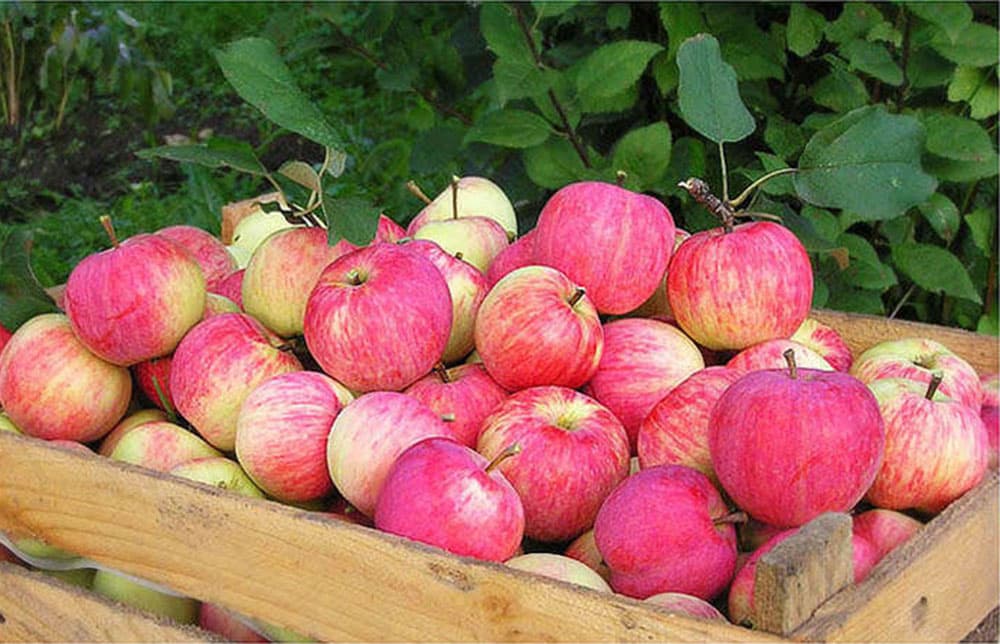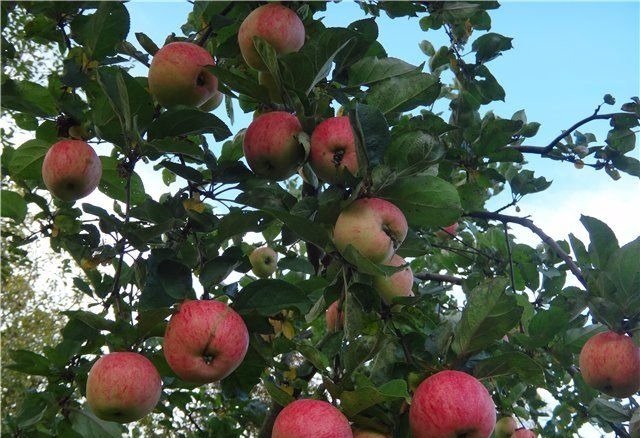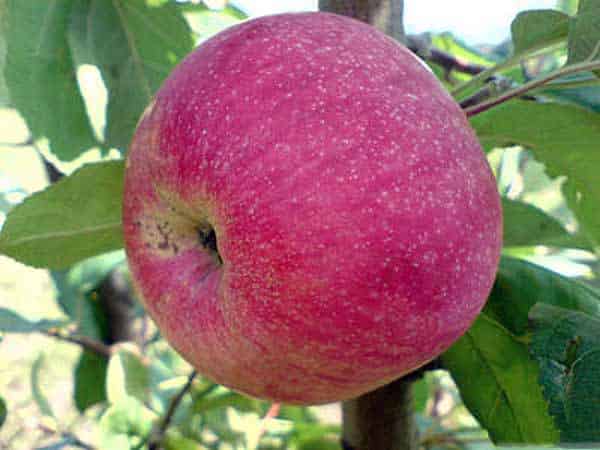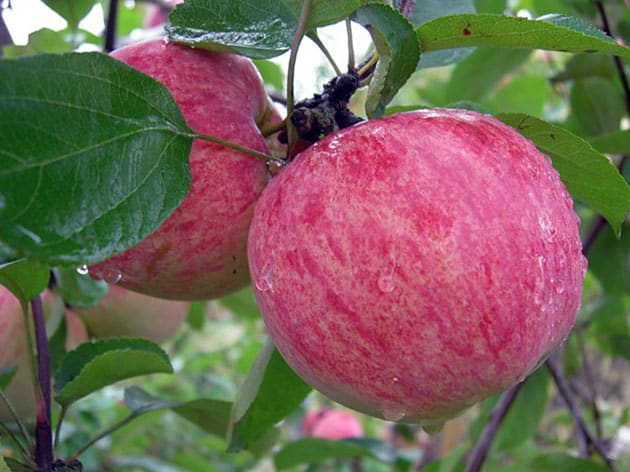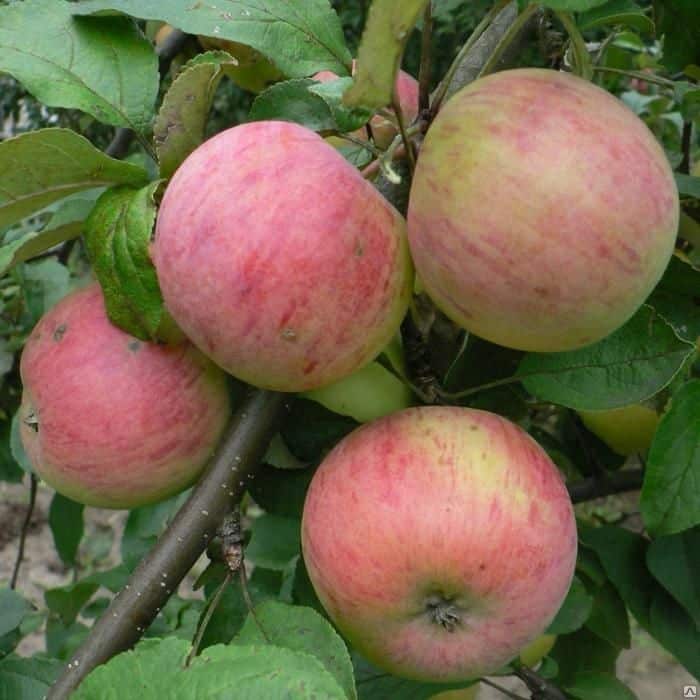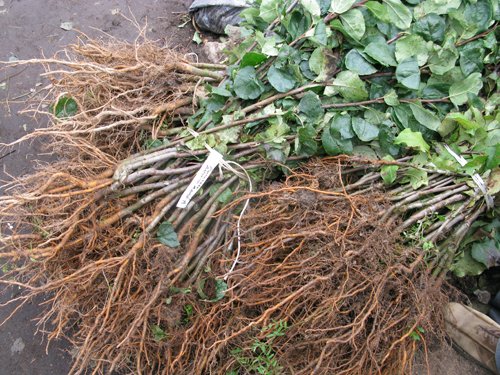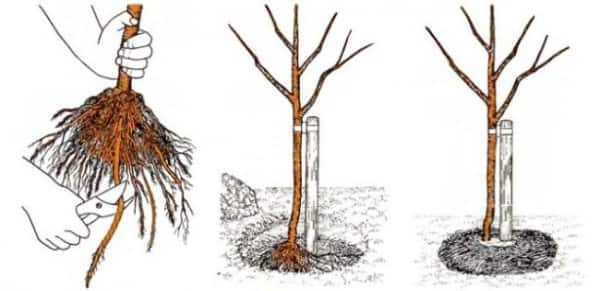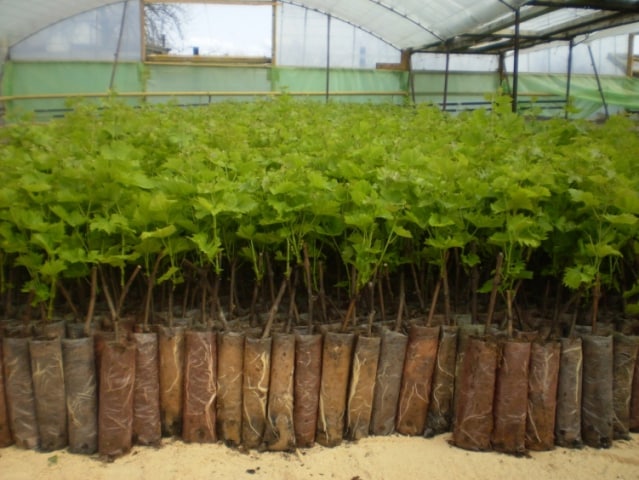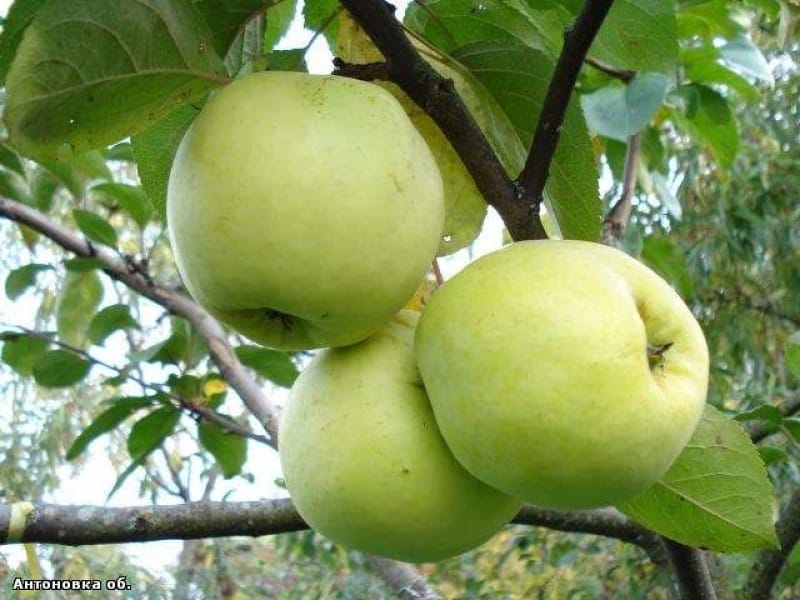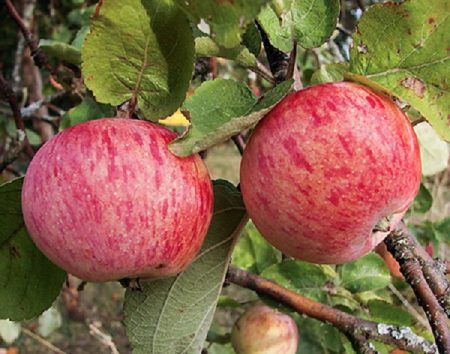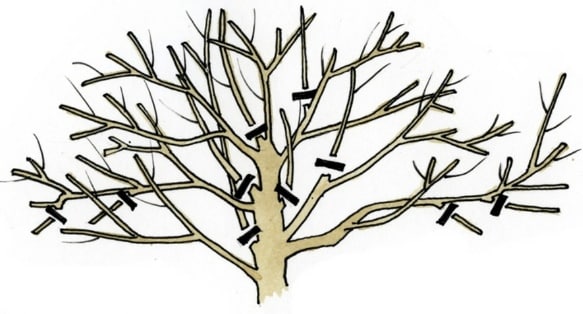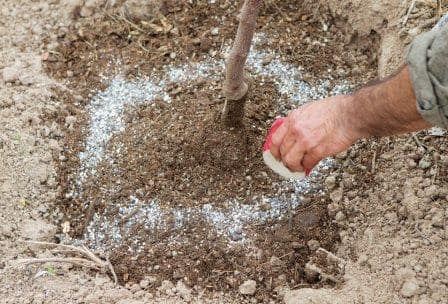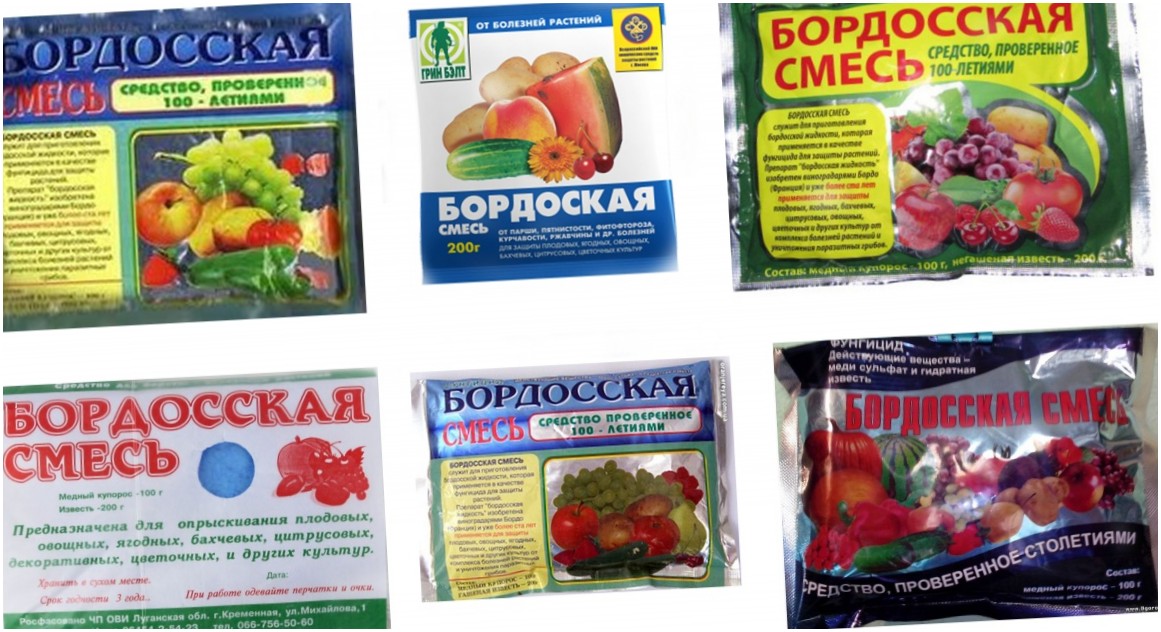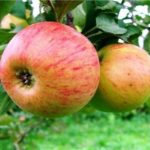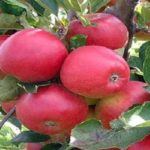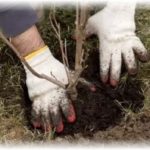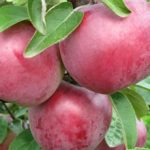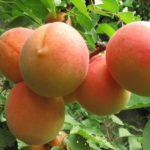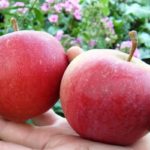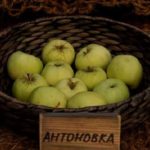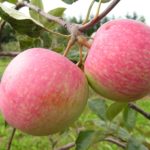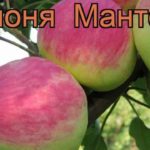The Streifling apple tree captivates gardeners with its high yield, attractive appearance and excellent taste characteristics. It has occupied a place of honor in gardens for a very long time. This variety originated from natural pollination of plants in the Baltic states. Now it is successfully cultivated almost throughout the entire territory of the former USSR.
- Variety varieties
- Autumn striped on a dwarf rootstock
- Apple tree Striefel
- Variety description
- Tree height
- Crown width
- Productivity
- Self-fertility
- Tasting assessment
- Frost resistance
- Advantages and disadvantages
- additional characteristics
- Tree planting
- Selection of seedlings
- Optimal time to plant trees
- Disembarkation step by step
- Distance between trees
- Growing
- Reproduction methods
- Flowering period
- Pollinator varieties
- Vaccine compatibility
- Fruit ripening
- Beginning of fruiting
- Care
- Pruning and crown formation
- Disease resistance
- Feeding and fertilizers
- Rejuvenation
- Diseases
- Pests
- Storage
- Geography of variety adaptability
Variety varieties
Many inexperienced gardeners believe that Streifling has several varietal varieties. In fact, in different regions the name of the variety is pronounced differently, which is why misunderstandings arise. The only differences are in what rootstock was used to grow the seedling.
Autumn striped on a dwarf rootstock
The Striefel variety, or as it is popularly called, the Autumn Striped Apple, grown on a dwarf rootstock, grows not in height, but in width, which greatly simplifies its care. The advantages of such a rootstock are:
- increased frost resistance;
- accelerated onset of fruiting.
The disadvantage of the dwarf rootstock is that the root system of the Streifling is located close to the surface of the soil, therefore it requires mandatory shelter for the winter in regions with a harsh climate.
Apple tree Striefel
The variety has another interesting variety - Striefel. It differs from the classic type by its red fruits, which fully ripen in early September. The rest of the characteristics are the same as the regular Streifling.
Variety description
The description of the Streifling variety indicates that the apple tree is an autumn variety and is suitable for growing in the middle zone. The main advantage of this tree is its increased frost resistance and excellent taste of the fruit.
Tree height
The Streifling apple tree is a representative of tall varieties. An adult tree grows up to 9 meters; on a dwarf rootstock its height is almost twice as low.
Crown width
The crown of Streifling is cauldron-shaped, its width in an adult plant reaches 8 meters. The branches are spreading, tend to be very dense, and are densely covered with foliage.
Productivity
The fruits of the Streifling variety are medium in size. The weight of one of them can reach 150 grams. The yield is excellent, and this figure increases with each year of the tree’s life. Reviews from gardeners indicate that 10 years after planting a seedling, 12 kg of apples are already removed from it, after 20 years - 180 kg, and after 30 years - 350 kg.
The record yield for this variety was recorded at 500 kg per tree.
Self-fertility
Streifling is not a self-fertile variety, therefore, for abundant fruiting, pollination of flowers by apple trees of other varieties is required. For every 10 Streifling trees, 3 trees of the pollinating variety should grow nearby.
Tasting assessment
Streifling apples have a very pleasant sweet taste with a slight sourness. The pulp is not too dense, but juicy. Tasters rated the taste of the variety at 4.5 points out of a possible 5.
Frost resistance
The Streifling variety is frost-resistant and can easily withstand temperatures down to -25 °C in winter. In rare cases, when the thermometer drops to -30 °C, frostbite is observed at the tips of the branches.
Advantages and disadvantages
Like any variety, Streifling has its own advantages and disadvantages. The benefits of apple trees are:
- high yield rates;
- excellent taste of apples;
- pleasant strong aroma;
- safety of the harvested crop for several months;
- universal use of fruits;
- increased cold resistance;
- resistance against codling moth and scab;
- Suitable for long distance transportation.
Streifling is not without its disadvantages, which include:
- late harvest ripening;
- a harvest year gives way to a lean year;
- the harvested crop cannot be preserved until spring;
- Apple trees do not tolerate prolonged drought.
additional characteristics
The Streifling apple tree variety has average resistance to powdery mildew and scab and increased resistance to pests. Needs timely preventive treatments. The fruits are able to retain their commercial and taste qualities for 2.5-3 months, subject to the necessary storage conditions. After this period, apples lose their taste and presentable appearance.
Tree planting
Planting a young seedling is the key to a future harvest. This procedure must be taken responsibly.
Selection of seedlings
Two-year-old Streifling seedlings have the best survival rate. Before planting an apple tree in your own garden, you need to inspect the root system. Under no circumstances should there be any signs of mold on the roots. A healthy seedling has well-developed, not overdried roots that are alive when cut. If their length is different, then before sending it into the ground it is trimmed using pruning shears.
Optimal time to plant trees
Streifling apple trees are planted in autumn and spring. The exact timing of planting depends on the climatic conditions of a particular region. In the spring, work is carried out after the snow has melted and the soil has warmed up a little. Autumn planting begins after the summer heat has subsided (August - September).
Disembarkation step by step
To ensure good yield and development of the seedling, it is planted in a well-lit place. A couple of weeks before the planned planting of Streifling, they dig a hole a little more than half a meter deep and about 75 cm in diameter. Deciduous humus is placed at the bottom, after which a little soil is poured. Then, after the specified amount of time, the young tree is installed in the prepared hole and buried with the remaining soil. In this case, the root collar of the seedling should be at a distance of 8 cm from the soil level. The plant is watered abundantly and mulched.
Distance between trees
Since Streifling apple trees are tall, the distance between neighboring trees should be at least 4 meters, and at least 5 meters between rows should be left.
Growing
Growing Streifling apple trees is not particularly difficult, but you must know some nuances.
Reproduction methods
Experts recommend propagate apple trees Streifling by grafting onto a dwarf rootstock. This technique allows you to get the harvest earlier, and the height of the mature tree will be smaller, which will make it easier to care for.
Flowering period
Streifling apple trees bloom in the middle or end of May. These dates may vary depending on the growing region.
Pollinator varieties
It is advisable to land Streifling nearby:
- Antonovka;
- Slavyanka;
- Padding;
- Welsey;
- Rossoshanskoye Striped.
Vaccine compatibility
You can vaccinate the Streifling apple tree variety, but experienced gardeners do not recommend such operations. The fact is that the tree is vigorous, so not all rootstocks are able to survive the winter at very low temperatures.
Fruit ripening
The ripening time of Streifling fruits varies depending on climatic conditions.In the middle zone, apples ripen by mid-September. They do not fall off, so they can remain on the tree until mid-October, but the shelf life of overripe fruits is significantly reduced.
Beginning of fruiting
The first modest harvest can be harvested 5-6 years after planting the Streifling seedling. With each subsequent year, the yield improves, and only after 9-10 years the tree begins to fully bear fruit.
Care
Care is a necessary measure in order to obtain a plentiful and tasty harvest of autumn Streifling apples.
Pruning and crown formation
Apple trees of this variety are distinguished by a lush and voluminous crown, so they need timely pruning. In spring or autumn, all old branches must be removed so that young shoots have the opportunity to develop normally. Also, twigs that are damaged, dry, or showing signs of disease are constantly removed.
Disease resistance
The Streifling variety has average resistance to major types of diseases, in particular scab and powdery mildew, and therefore requires mandatory preventive treatments.
Feeding and fertilizers
Before flowering begins, urea is applied under the apple trees. In summer, the tree experiences a deficiency of microelements, so it is watered with a solution of vitriol and boric acid. In autumn, the plant is fed with mineral fertilizers.
Rejuvenation
Work on rejuvenating apple trees takes a long time. Initially, sanitary pruning is required in the fall. In the spring, they begin to form a pyramidal crown, cutting off the branches so that the top ones are shorter than the middle and bottom ones. This is not done immediately, but over several years. The formation of the crown begins on the south side.If you remove many branches at once, the apple tree may not survive the stress and dry out.
Diseases
If the region experiences damp weather, fungal diseases can affect Streifling apple trees. To prevent this and keep the future harvest healthy, it is necessary to treat the trees with special preparations in a timely manner. Bordeaux mixture is suitable for these purposes.
Pests
Apple trees of this variety are characterized by increased resistance to pests.
Storage
The shelf life of fresh Streifling apples is a maximum of 4 months. After this, the fruits gradually fade and lose their taste characteristics. To prevent this from happening, the crop should be processed in a timely manner.
Geography of variety adaptability
This apple tree variety is successfully cultivated throughout almost the entire territory of the countries of the former USSR, in particular, Ukraine, Belarus, Poland, and Russia. In the latter case, the Central Black Earth region, the Middle Volga region and the entire middle zone are best suited for growing these plants.

